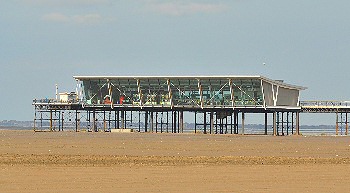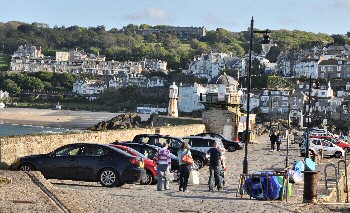|
Children believe Southport
is… on the South Coast
 AS
families hit the beach to make the most of the heatwave, parents beware:- British
children think Southport is on the South Coast. Children in Southport fare
no better when it comes to pinpointing seaside locations; a 5th think St Ives
in the Caribbean and Torquay is in France. British children are clueless
to where our most popular and traditional seaside resorts; including Southport; are located, according to a new travel report.
With a heatwave hitting Britain, this weekend families will be packing their
buckets and spades and flocking to the seaside. However parents should be aware
that children think Southport is on the South Coast, St Ives is located in the
Caribbean, and Torquay is in France. The
study conducted by Travelodge, which has over 500 hotels across the UK,
including nearly 100 properties in coastal locations, quizzed 2,000 British
children aged between 8 to 15 years old. Key findings revealed that
despite young Britons taking a regular jaunt to the seaside, they are oblivious
to the actual location of Britain's coastal destinations.
When quizzed 65% of young Britons admitted that they do not know where Southport
is, with 22% thinking it was on the South Coast and 10% believing it was in
London.
Local children fared no better in the
geography knowledge stakes. When asked to identify the location of Brighton, 50%
did not know where it was. 18% thought it was located in Cornwall.
 75% admitted that they do not know where the
jewel of Cornwall's crown, St Ives, is located. A full 22% thought the seaside
town, set in breathtaking coastal scenery, is located in the Caribbean.
Even the location of Newquay, one of the UK's
tourist hotspots, eluded many with 21% unable to say where it was. 10% thought
it was in the USA.
When asked where Torquay is, 35% of local
children did not know, with 18% saying it was in France.
Bournemouth, 1 of the nation's favourite
seaside destinations also made the listing, with 30% of young locals not knowing
where it is located. 12% believed it was in Scotland.
Shakila Ahmed, Travelodge Spokeswoman said:- "This research highlights
that children are struggling to grasp the basic geography of Britain. In today's
modern world, the ease of Sat-Nav to get from home to a holiday destination has
eliminated the geography element of the trip. In the past, parents would have
highlighted the journey on a map and kept their children entertained in the car
talking about the geography of their trip. English seaside resorts have a
special place in our hearts, as they are where childhood memories are made.
Therefore it's important for young travellers to learn the geography of their
country, as it will stay with them forever."
Travelodge's research has shown that the traditional seaside holiday is back in
vogue this year as 52% of local families are flocking to the coast this summer.
As a result Travelodge is witnessing record trading in coastal hotels for the
1st weekend in July as the hot weather hits.
Listed below are top 10 tips for parents to help improve their children's
British geography knowledge:-
1. Before setting off on holiday, encourage your children to read up on the
area. Have a family quiz about the area to involve your children.
2. Ask your children to make a list of all the fun things that you can do as a
family to help explore your holiday destination.
3. Ask your children to plan your journey using the internet or a map. Use their
map alongside the Sat-Nav to keep them entertained during the journey.
4. Break up your journey and explore other destinations en route
5. Place a map of Britain in a prominent place at home and mark off each
Staycation break.
6. Travel in different ways like:- bus, car, bicycle, tram etc..
7. Keep maps and globes around the house and let your children see you use them
8. Try new locations, get your children to pick a holiday destination
9. Encourage children to play games and participate in activates on British
geography sites
10. Encourage children to write about the locations that they would like to
visit in the UK. Ask them to look into the history of the location and do a
fact find.
|
